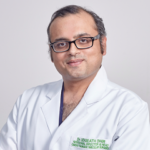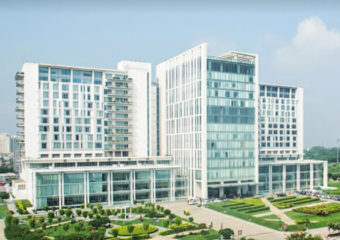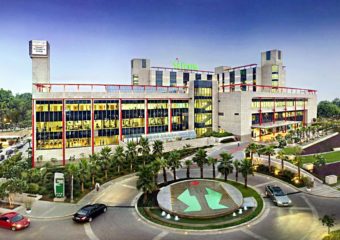Heart Valve Replacement Surgery Cost in India

The average cost of Heart Valve Replacement Surgery in India ranges from USD 6,200 to USD 12,000. The cost is dependent on the kind of valve used i.e., Mechanical or a Tissue valve.
Heart Valve replacements could be Aortic Heart Valve Replacement and Mitral Valve Replacement.
Remain in the hospital accounts for approximately 8 days and about 14 days outside the hospital.
Valve Replacement surgeries are tremendously successful today. A current Valve Surgery procedure is TAVI, which aims at replacing the Aortic valve utilizing the transcatheter technique.
Tests Necessary for discovering Valve Replacement are EKG (electrocardiogram), Chest X-Ray, Coronary Angiography, Anxiety Evaluation, and Cardiac MRI.
What is Heart Valve Replacement?
Heart Valve Replacement surgery is a medical procedure that is performed to replace the damaged valve(s) in the heart due to heart valve disease.
The heart is a blood passage pump made up of muscle tissue. Which contains four chambers, two atria and two ventricles. To regulate the blood flow between these chambers, the heart has four valves. The job of these four valves is to make sure the heart’s blood flows in the right direction. If any of the valve(s) are damaged or diseased, it obstructs or affects the blood flow in the heart in two ways.
Leaky Valve – If the valves don’t close appropriately then it will affect the blood flow, which means it will enable blood flow to leak backward. This condition is named as leaky valve or regurgitation or valve incompetence.
Valve Stenosis – In the second case if the valves don’t open completely, it will obstruct the blood flow. Which is known as valve stenosis or valve narrowing.
People who have heart valve disease will definitely need treatment, based on the patient severity doctor advises to have surgery. This will greatly improve the quality of healthy life.
Symptoms for Heart Valve Replacement
The main signals of heart valve disorder is an unusual heartbeat noise known as a heart murmur. Lots of people having heart problems disease do not have any signs until they’re middle-aged or elderly. The primary symptoms and signs include:
- Unusual fatigue (tiredness) or weakness
- Shortness of breath or difficulty catching your breath
- Swelling in the ankles, feet, legs, abdomen, and veins in the neck
- Fluttering, racing, or irregular heartbeat.
- Chest pain or palpitations (rapid rhythms or skips)
- Inability to maintain the regular activity level
- Light-headedness or loss of consciousness
Treatments for heart disease disorders mostly depends upon the intensity of the disease and symptoms.
Medical Tests for Detecting Heart Valve Replacement
For the identification of heart valve disorder, the physician will firstly check for the symptoms and signs. Afterward, a physical examination is done. The commonly advised test are:
- Echocardiography
- Electrocardiogram
- Chest-X ray
- Cardiac catheterization
- Stress Evaluation
- Cardiac MRI
Why is Heart Valve Replacement surgery done?
Doctor monitor a patient’s symptoms and health condition, depending upon the valve problem the surgeon suggests heart valve surgery. If the diseased heart valve is completely damaged then it is replaced with a new valve.
In heart valve replacement surgery the damaged valve is replaced with mechanical valve(s) or biological valve(s).
Different surgical procedures are followed by surgeons for this heart valve replacement procedure. Which includes open heart surgery, minimally invasive heart surgery, Transcatheter aortic valve implantation (TAVI). The surgical procedure completely depends on the patient’s age, health severity, valve condition, etc.
For example, TAVI the minimal invasive heart valve replacement procedure is performed in adults whose condition is not enough to have open heart surgery.
Which type of valves are used in heart valve replacement surgery?
Heart valve replacement surgery mostly required for aortic valve replacement or mitral valve replacement. In some cases patients need more than one valve replaced or repaired. When it comes to valve replacement two types of heart valves are used by surgeons.
Mechanical valves are typically made with some materials, like, plastic, carbon, or metal. Mechanical valves are solid, and they keep going quite a long while. Usually, blood tends to stick in mechanical valves and forms blood clots. Therefore, patients should take blood-dilution medicines (anticoagulants) for their remaining life.
Biological or Tissue Valves are produced by using animal tissue (xenograft) or taken from the donated heart human tissue (allograft or homograft). In some cases, a patient’s own tissue is also used for valve replacement surgery (autograft). These valves are not as strong as mechanical valves, patients need not take blood-dilution medications. These valves should be replaced for every ten years or whenever required.
Different types of heart valve replacement surgical procedures are available
- Open heart surgery
- Minimally Invasive Aortic Heart Valve Replacement (MIAVR)
Doctor decides which type of valves are the best suited for patient’s heart.
During Procedure
- The process is done under general anesthesia and also the process takes 2-4 hours.
- The patient is changed to the operating area & GA is administered
- The patient’s heart is ceased and there is attached to some heart-lung bypass machine. This machine performs the function of their heart, supplying oxygen and removing carbon dioxide.
There are various surgeries for this ailment. Some of the most common heart surgeries are:
Open Heart Surgery: Surgeon creates a sizable surgical cut from the breastbone to make it to the heart and aorta.
Minimally Invasive Surgery: During this process, quite little cuts are made or it’s done using a catheter, that is inserted through the skin.
Valve repair: When the valve may be repaired, then the surgeon will repair it by
Ring annuloplasty: The ring-like area around the valve is repaired by stitching a ring of plastic, fabric, or tissue around the valve.
Valve repair: During this surgeon’s time, shapes, or one or more of the leaflets of the valve. The leaflets are flaps that open and shut the valve.
Valve replacement: When the valve is too damaged, then a fresh valve is placed. This surgeon will remove the old valve and place a new one set up. The Main Kinds of fresh valves are:
- Mechanical – This is made of man-made materials, such as metal (stainless steel or titanium) or ceramic. After the procedure, the patient is advised to take blood-thinning medicine for the rest of their life
- Biological – This is made of human or animal tissue. These valves last 12 to 15 years, and the patient may not need to take blood thinners for life.
The incision will be closed with sutures or surgical staples and a sterile bandage or dressing will be applied.
After Procedure
- After valve replacement, patient usually need to stay in hospital for about a week.
- You will be kept in intensive care unit (ICU) for initial days.
- The activity of your heart, lungs and bodily functions will be closely monitored, ventilator will be placed until you are able to breathe.
Draining tube – small tubes from your chest to drain away any build-up of blood or fluid.
Pacing wires – if necessary, these will be inserted near the chest drains to control your heart rate.
- Advised to follow a cardiac rehabilitation programme.
- Avoid strenuous exercise, sudden strains and heavy lifting for three months.
- You will be able to perform usual activities after 4 to 6 weeks.
- Report to the physician if any warning signs of infection.
- Consult your doctor regularly to check for efficiency of heart valve.
- If you have a mechanical heart valve, necessary to take anticoagulant medicine to help prevent clots.
Factors Affecting Cost of Valve Replacement Surgery
Following are the variables that will affect the treatment price:
- Room –Standard single room, deluxe room, super deluxe room for the number of nights defined (such as nursing charge, meals, room rate, and room service).
- Operating room, ICU
- The fee to the group of physicians (Surgeons, Anesthetist, Physiotherapist, Dietician )
- Medicines
- Regular evaluation and diagnostic processes
- Cost of valve
- The hospital Patient is choosing for.
Related Article
Frequently Asked Questions About Heart Valve Replacement?
Q: When is heart valve surgery required?
A. Surgery is needed when someone undergoes heart valve stenosis or regurgitation along with the related symptoms can’t be managed with drugs.
Q: What are the risks of heart valve surgery?
A: Just like any surgical procedure, patients undergoing heart transplant operations are at risk of disease, reaction to anesthesia, or excessive bleeding. Other risks associated with heart valve operation may abnormal heart rhythms, valve leakage, blood clots, stroke, heart failure, and death.
Q: How long will the heart valve last?
A. In certain patients, valves have lasted as long as 25 years without any difficulties. But they’re opportunities that fresh artificial valve could endure for the rest of your life. There are instances when a valve needs to be substituted within a matter of months or years, for any range of factors.
Q: Will the new valve need any special care?
A: The patient will probably be counseled to take blood thinners after the replacement.
Q. Is it safe to have an x-ray or MRI after the valve replacement?
A. All replacement heart valves are completely safe with x-ray examinations or MRI.
Q: When can a patient return to their normal activities after surgery?
A: An entire recovery following valve replacement may take a couple of months and this may also be dependent on the patient’s overall health before the operation.
Q: What are the advantages of Valve Repair over Valve Replacement?
A: Advantages to valve repair instead of replacement include:
- lower surgical mortality
- lower risk of stroke
- lower rate of endocardial infection
- After mitral valve repair, blood thinners are not required








